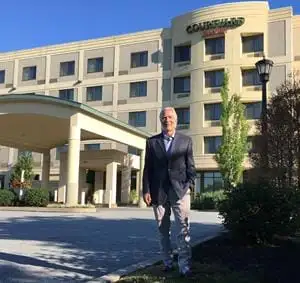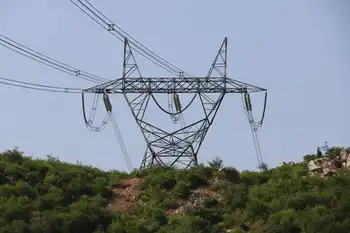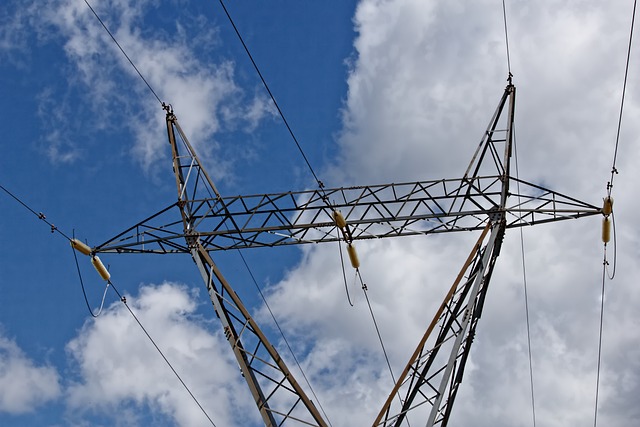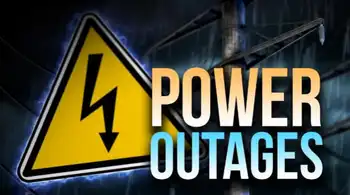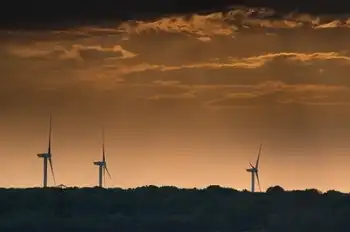Bush administration wants to expand nuclear waste site
By Kansas City Star
Substation Relay Protection Training
Our customized live online or in‑person group training can be delivered to your staff at your location.

- Live Online
- 12 hours Instructor-led
- Group Training Available
If expanding the Yucca Mountain project isn't approved, the Energy Department probably would ask Congress next year for authority to build a second dump, said Edward Sproat III, who oversees the department's Office of Civilian Waste Management.
Though Congress authorized construction of the project, it's faced fierce opposition from Nevadans and some environmental groups, who think that Yucca Mountain couldn't safely store the waste for thousands of years. But Congress has continued to fund the repository amid pressure from utilities that are anxious about the waste accumulating at their reactor sites.
There's a statutory 77,000 metric ton cap (84,877 short tons) on how much nuclear waste can be stored at Yucca Mountain, about 90 miles northwest of Las Vegas.
"If it (the cap) isn't raised, it won't have the capacity to take all the defense and civilian waste," Sproat said.
The administration also wants to tap the $19.5 billion Nuclear Waste Fund to start paying the construction costs for Yucca Mountain. The fund, financed by a fee on the electricity that nuclear power plants generate, was intended to pay for the facility. But because of congressional budget rules, the Energy Department has had to seek an annual appropriation from Congress to pay for the nuclear waste repository, which is scheduled to open in 2017.
The administration's proposals, delivered to Congress, are similar to proposals made last year.
Yucca Mountain initially was to open in 1998. Because of the delays, utilities that operate commercial nuclear-power plants have been forced to store their spent fuel on site even as they pay into the Nuclear Waste Fund.
Sproat said the federal government would owe the utilities about $7 billion in damages because of delays at Yucca Mountain.
"This liability can't be paid by ratepayers," Sproat said at a recent briefing sponsored by The Energy Daily, a trade publication. "It's the responsibility of U.S. taxpayers. This is a real financial driver to push this program forward."
On Capitol Hill, Senate Majority Leader Harry Reid, D-Nev., called the administration's proposal dead on arrival.
"This is just the department's latest attempt to breathe life into this dying beast and it will fail," Reed said in a recent statement. "As Senate majority leader I will continue to leverage my leadership position to prevent the dump from ever being built."
Reid and Nevada's other senator, Republican John Ensign, have introduced legislation that would require nuclear waste to be stored at the facilities where it's produced.
"The administration is firmly committed to moving forward with Yucca," Sproat said. "This is not an all or nothing bill. We want to continue the debate and dialogue" with Congress.
As currently planned, Sproat said, about 20 percent of the waste stored at Yucca Mountain would be generated from producing the nation's nuclear arsenal. Much of the waste is stored at the Hanford reservation in central Washington state, the Savannah River Site near Aiken, S.C., and the Idaho National Laboratory near Idaho Falls.
Preliminary design studies showed that Yucca Mountain could handle 120,000 metric tons (132,277 short tons) of waste, but Sproat said it would be up to the Nuclear Regulatory Commission to determine the repository's capacity. The Energy Department is expected to ask the NRC for a license for Yucca Mountain in summer 2008.
If Congress blocked Yucca Mountain, Sproat said, lawmakers must determine what would become of the nuclear waste.





